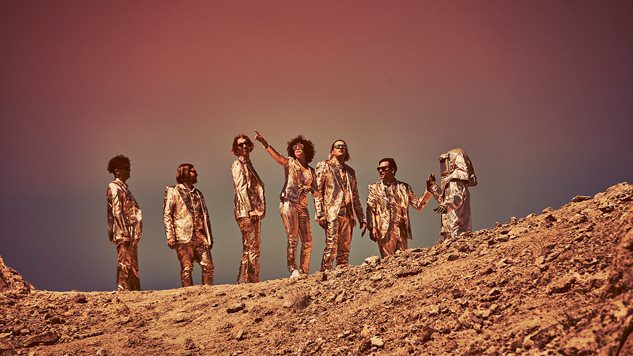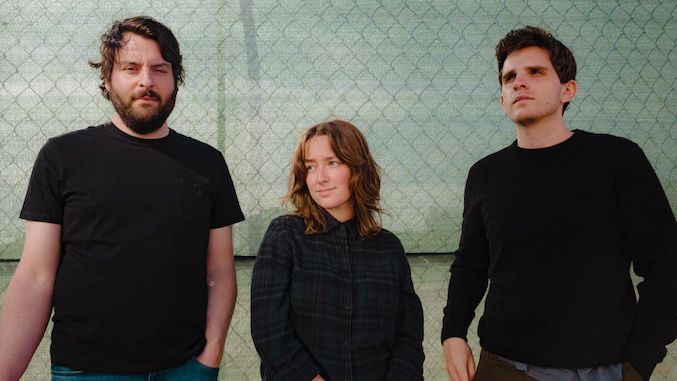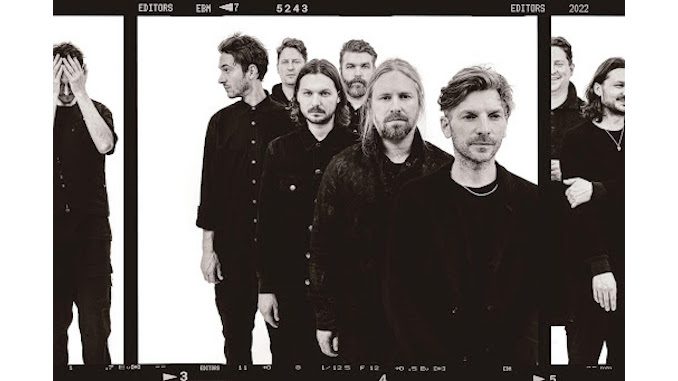“It has left me restless and endlessly frustrated, thinking about this, about a place that isn’t necessarily just a place but is also a state of mind.”
That’s how Eric Eidelstein begins his personal yet overarching look at Arcade Fire’s monumental 2010 album The Suburbs. The indie rock outfit is responsible for a handful of impeccable releases—from their sweeping 2004 debut Funeral to 2013’s daring Reflektor—but none triggers the imagination quite like The Suburbs, which we at Paste named one of the best albums of the 2010s. That restlessness Eidelstein describes in his 33 1/3 book is what makes The Suburbs such an inescapable and timeless classic. No matter how much bigger the urban/rural divide gets, people will always get stuck places—whether metaphorical or physical. And they’ll always find reasons to be restless.
The Suburbs, their third studio album, turns 10 this Sunday, Aug. 2, and in the years since its release, Arcade Fire have found themselves both at the forefront of the critical conversation and general rock music discourse. For most of the last 20 years, it seemed like they could do no wrong. They released four rock-solid albums, and then, in 2017, they dropped a dud (critically, at least). Even though this writer (and this writer) has found certain aspects of it to be redeemable, Everything Now was panned by everyone from Pitchfork to SPIN (who went so far to say it was a “deeply cynical, joyless album”). The Suburbs has endured throughout these conversations, perhaps because it cleanly offers social criticism and satire without cynicism. Everything Now attempts grand critique of culture in the same way The Suburbs does, but only the latter really pulls it off. Arcade Fire take more chances on this ambitious concept album, but the payoff is enormous.
Anyone who has lived somewhere small will understand what The Suburbs is getting at. For frontman Win Butler and his brother Will, this album was inspired by their upbringing in The Woodlands, Texas, a suburb outside Houston. I grew up in a small sweaty town in Alabama, not some cookie-cutter community lingering in the shadow of Chicago or Orlando or New York, but I still understand American mundanity and what it feels like to be trapped. This Arcade Fire album approaches that feeling more than just a sketch of a certain kind of place. “The Suburbs” could be anywhere. As Eidlestein also wrote, “I want you to think of the suburbs, whatever they may mean for you.” And as Win himself said, the album is “Neither a love letter to, nor an indictment of, the suburbs – it’s a letter from the suburbs.” The Suburbs continues to outlast other concept albums from this time period because it can be about anywhere.
There are certain moments on The Suburbs that capture that aforementioned restlessness. Some sound more like freedom. And others seem to reflect American culture on a larger scale. One does all three, and it’s therefore the high point of the album. Régine Chassagne takes the spotlight on the massive, disco-inspired second “Sprawl”—“Sprawl II (Mountains Beyond Mountains)”—and, like a great coming-of-age film, it somehow encapsulates everything about growing up, chasing dreams and the ache so many of us felt when we imagined a life somewhere beyond our seemingly small worlds. “These days, my life, I feel it has no purpose / But late at night the feelings swim to the surface,” Chassagne sings. “’Cause on the suburbs the city lights shine / They’re calling at me, come and find your kind.” It’s an invitation to make good on those dreams and aches.
Arcade Fire are fond of creating a specific atmosphere or universe with each record—even if that landscape is one already familiar to us. Other key tracks include “The Suburbs” itself, which introduces us to the metaphorical ‘Burbs where the next hour of music will take place. “The Suburbs,” which attempts to tear down some of the utopian-like notions about suburban communities, is the project’s thesis statement, one that addresses themes like uniformity and toxicity in Western culture that they had only touched on in previous albums. The next song, “Ready to Start,” is a fast forward to fresh beginnings, the sparkling “Rococo” observes bored trendy teens and “Month of May” describes the wild feelings that come around when the world finally starts to thaw out every year. Lyrically, it’s a picturesque and vivid record from start to finish, but The Suburbs is also just a really good indie rock album. “Modern Man” is a bouncy rock jam, “Half Light I” swells with experimental strings and “Deep Blue” sinks into a cool, dark escape from the miles and miles of concrete. The synths, guitars and drums on The Suburbs make it a delight to behold even if you’re ignoring the lyrics, which are—let me be clear—still of the utmost importance.
The significance of an album like this to the young people who heard it cannot be overstated. The Suburbs simultaneously represents both a suffocation and a vastness equal to that of the Grand Canyon. But, most importantly, The Suburbs promises that we can get away from the uniform sprawl of our lives and venture into innumerable untrod territories. It doesn’t matter how many times I hear The Suburbs, I always feel more energized afterwards. And I don’t think I’ll be “moving past the feeling” any time soon.
Ellen Johnson is an associate music editor, writer, playlist maker, coffee drinker and pop culture enthusiast at Paste. She occasionally moonlights as a film fan on Letterboxd. You can find her tweeting about all the things on Twitter @ellen_a_johnso.




